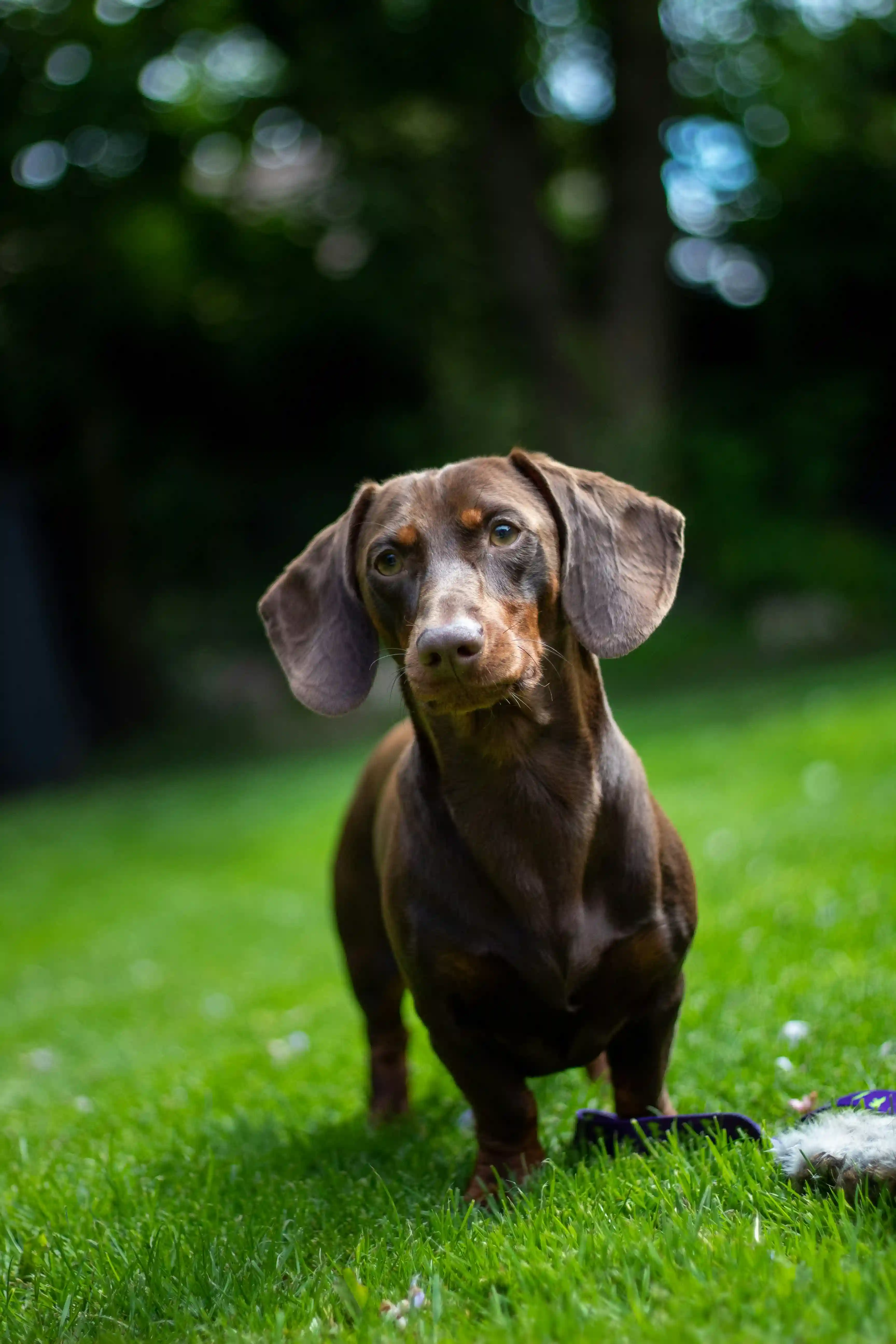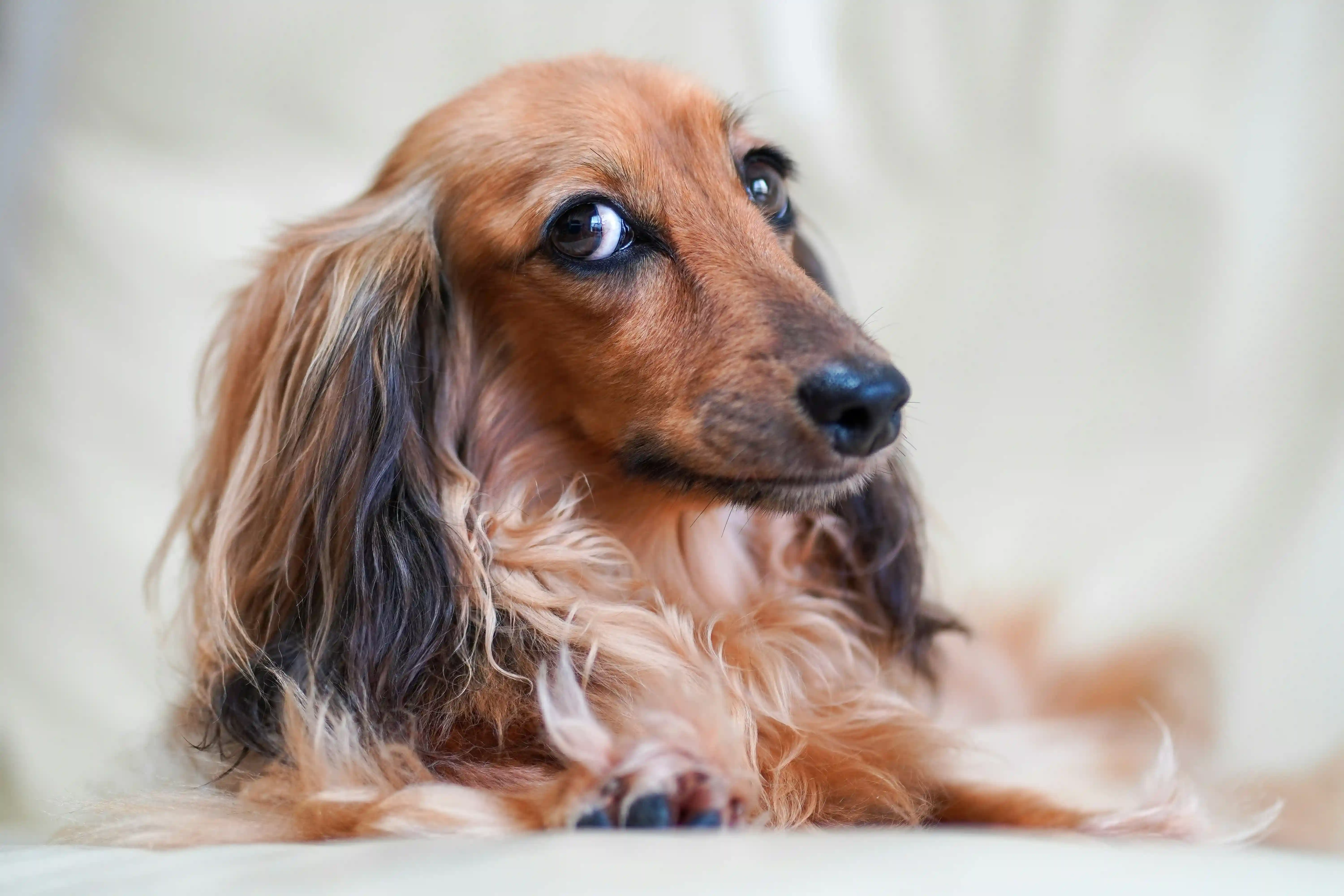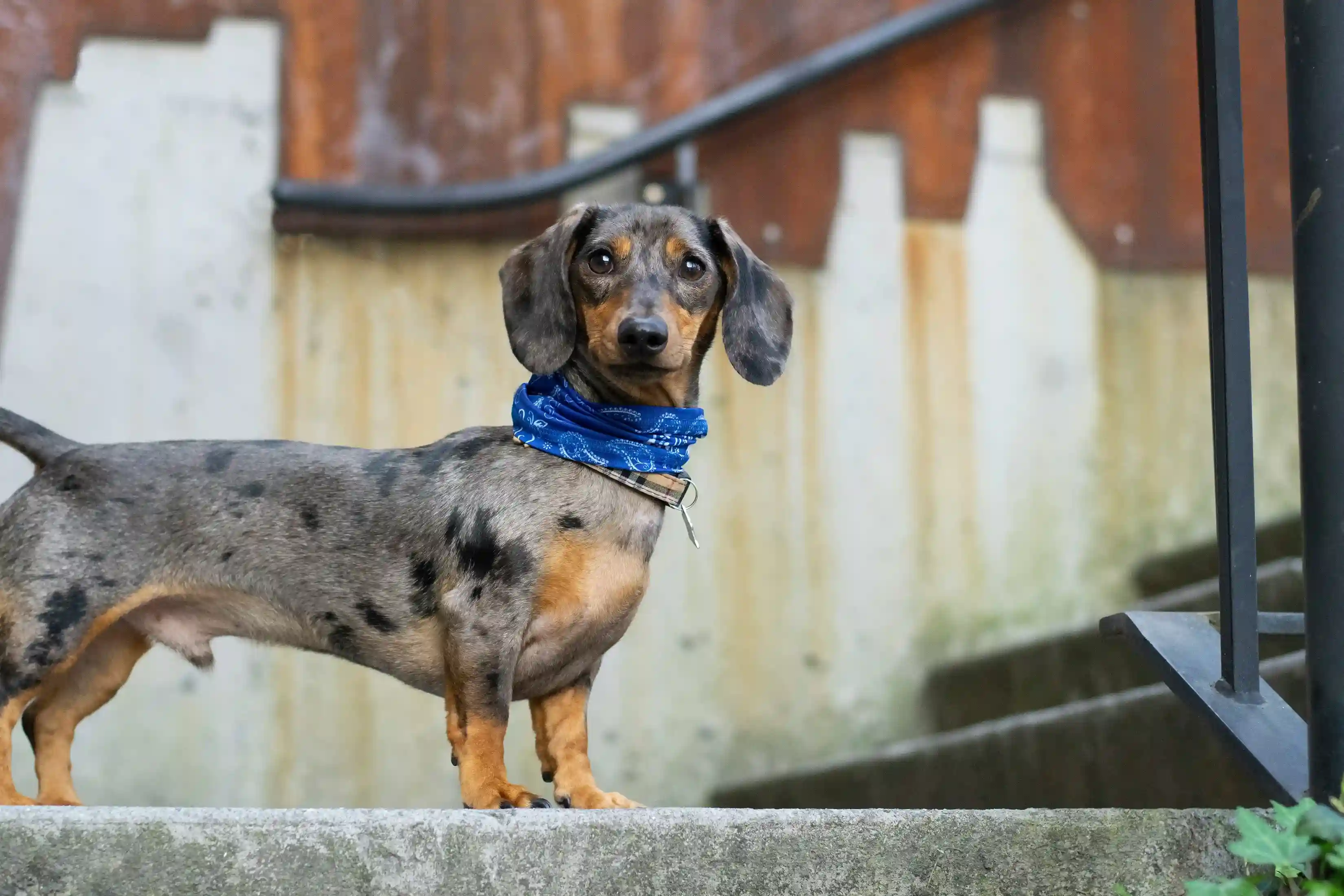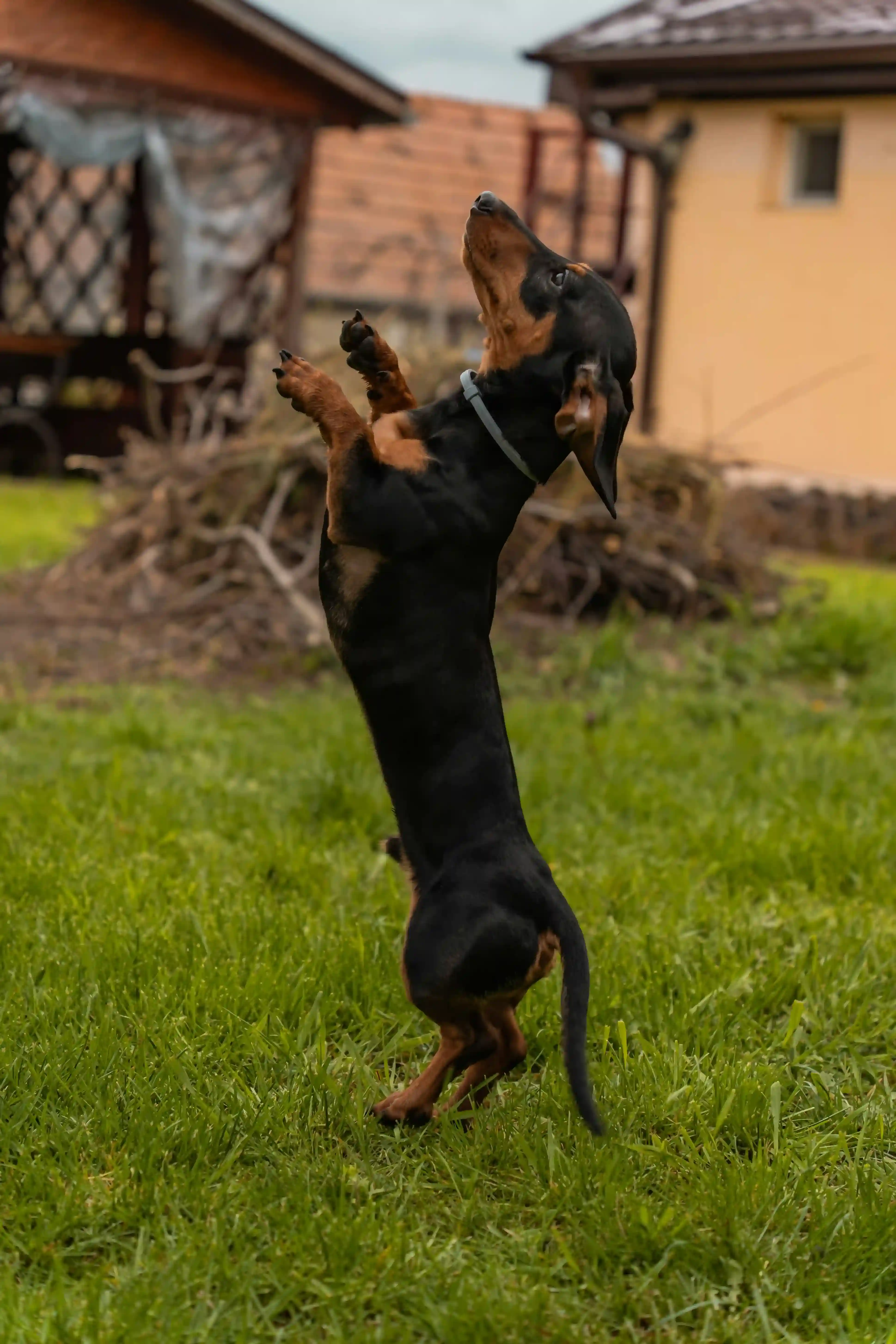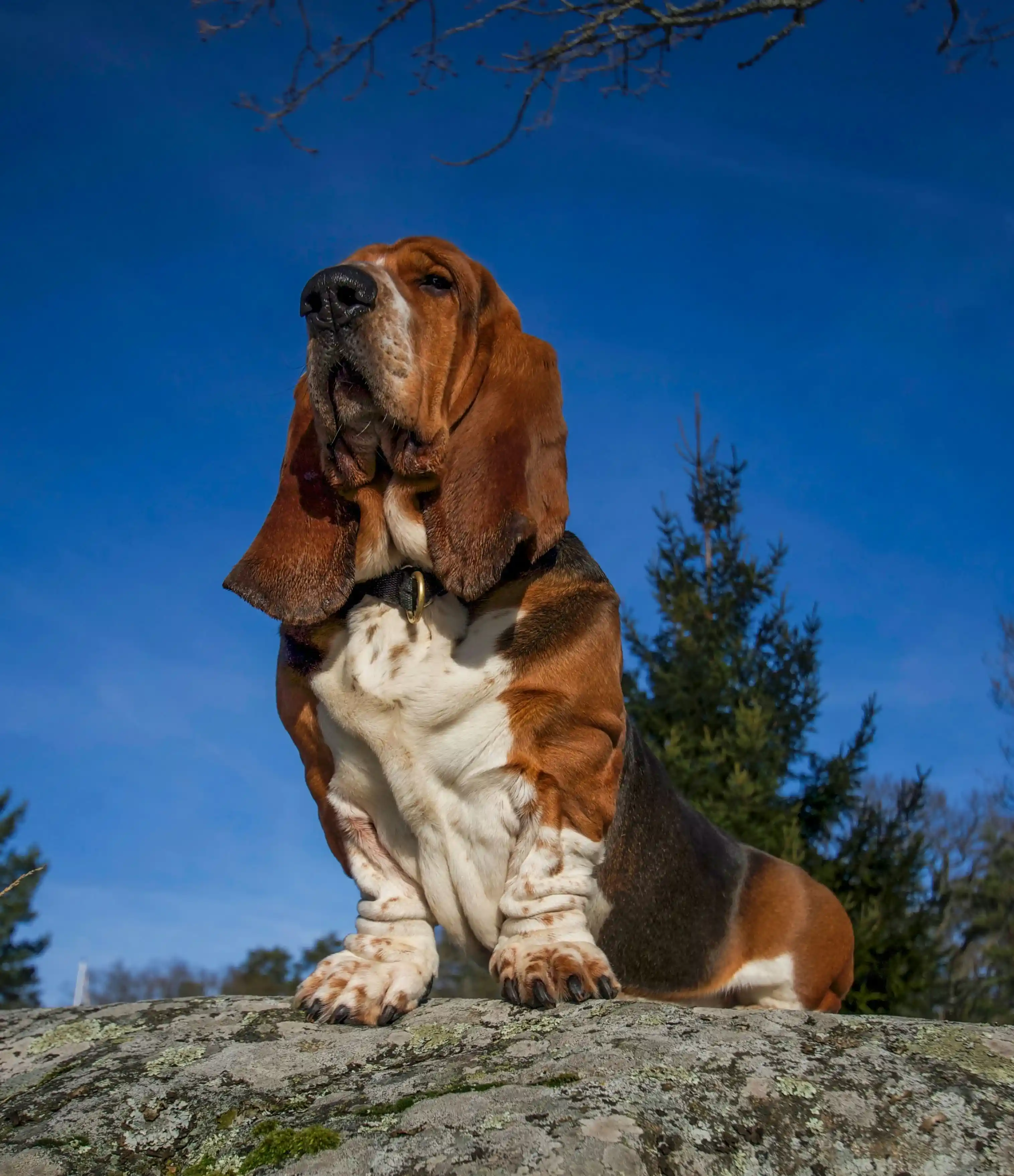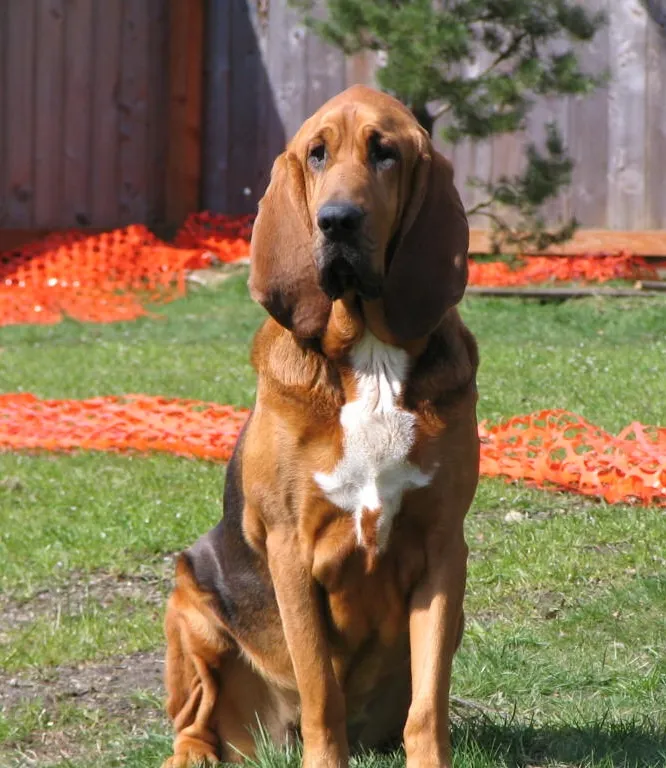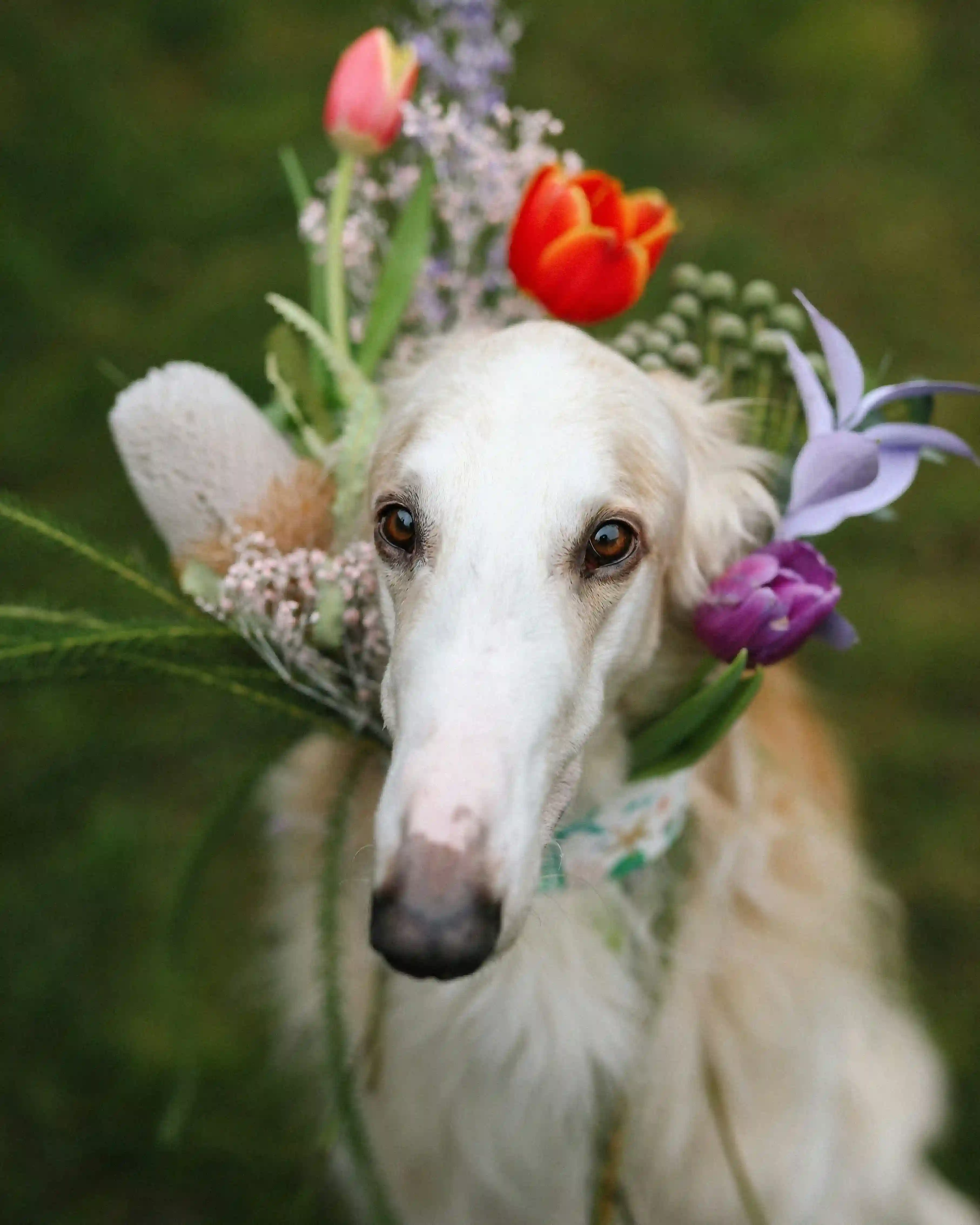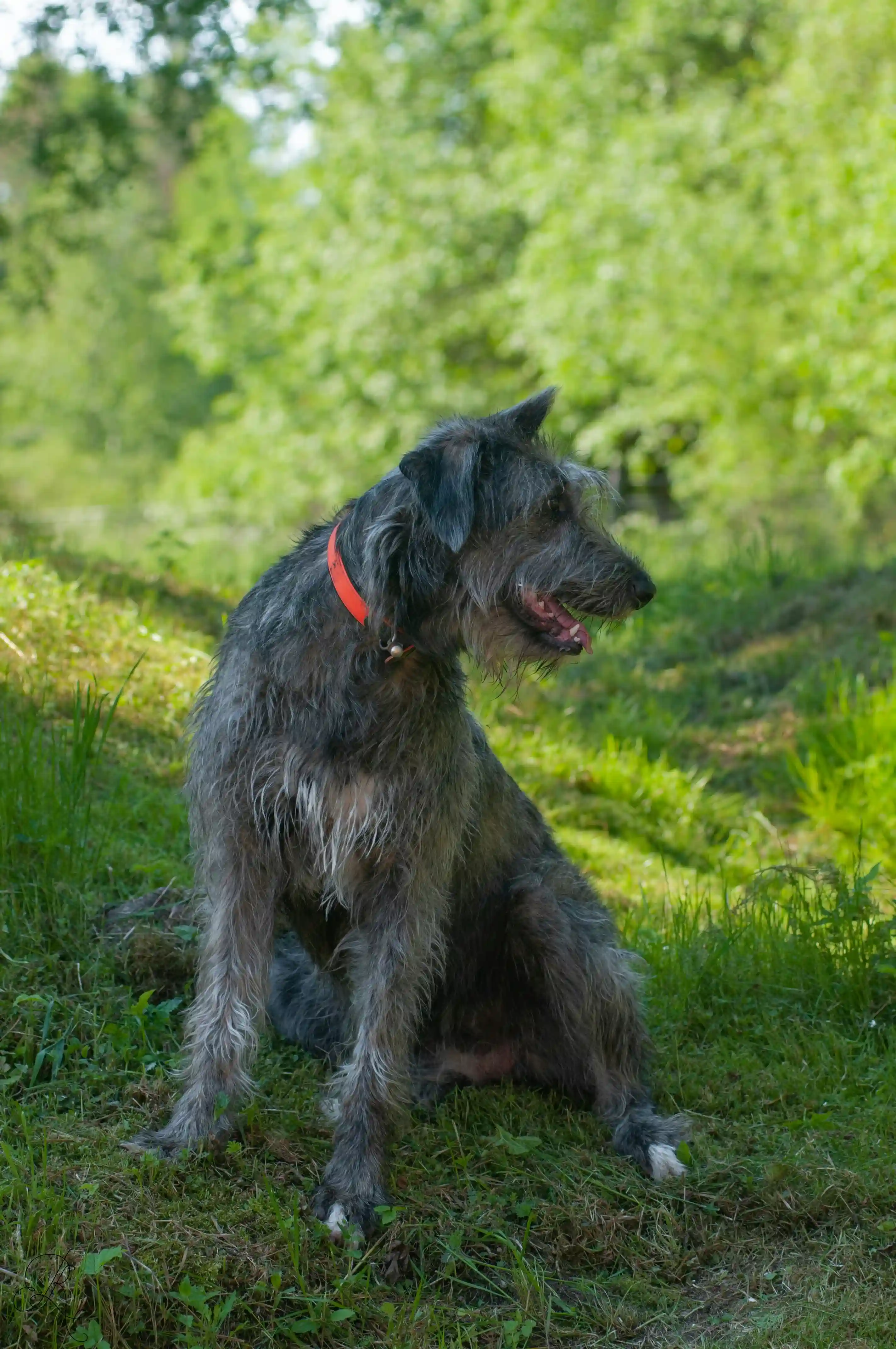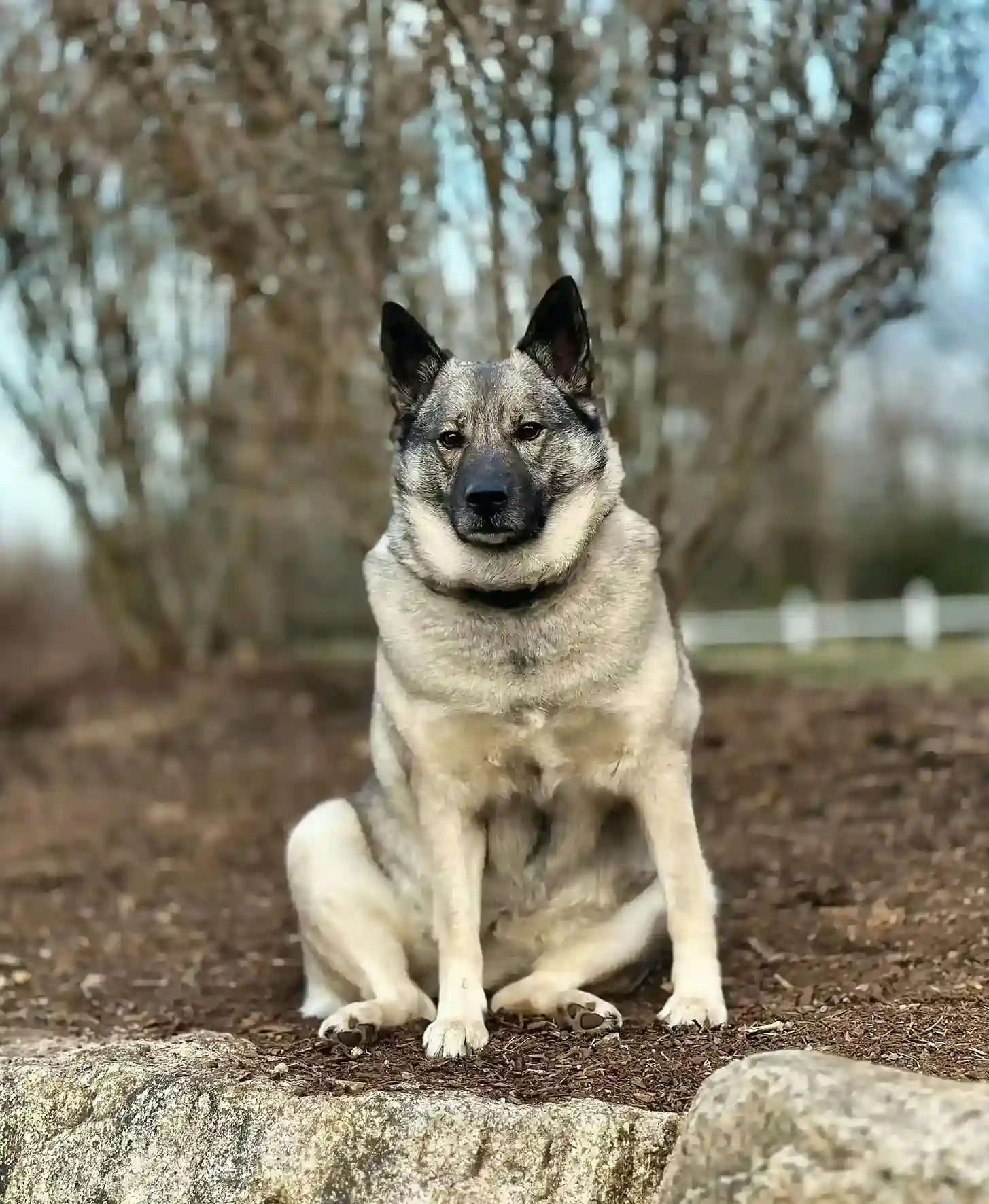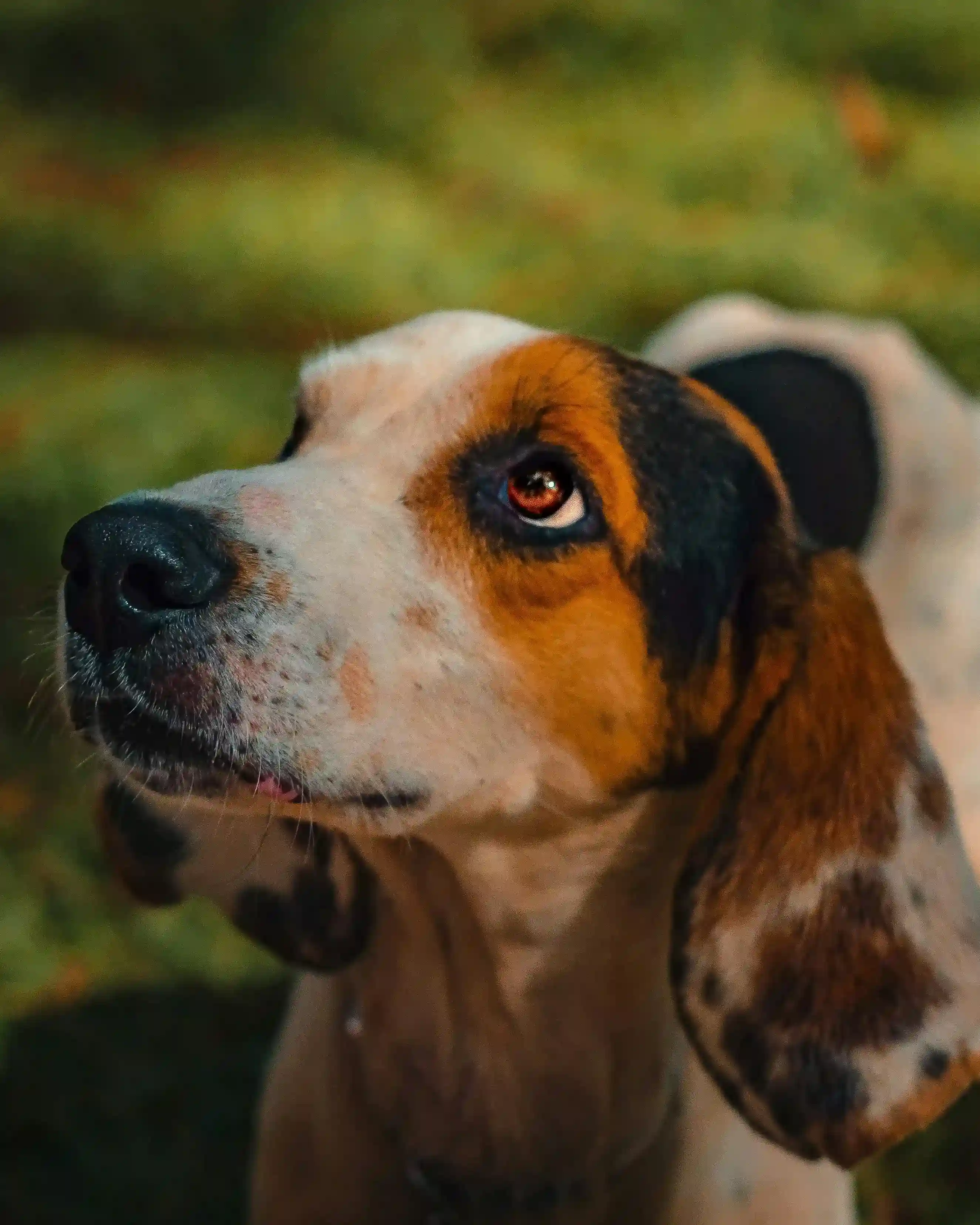Summary: The Dachshund, affectionately known as the "wiener dog," is a small but lively breed with a distinctive long body and short legs. Originally bred for hunting small game, particularly burrowing animals like badgers, Dachshunds are brave, independent, and known for their curious and playful nature. Despite their small stature, they are confident and energetic, often exhibiting a bold personality that belies their size. Dachshunds are loyal and make great companions, often forming strong bonds with their families. While they are affectionate, they are also known for their stubbornness, which can make training a challenge. With the right training and socialization, they can be wonderful, well-adjusted pets.
Care: Dachshunds come in three coat types: smooth, long-haired, and wire-haired. Regular brushing is essential for the long-haired and wire-haired varieties to keep their coats free from tangles and mats. The smooth-coated variety requires less grooming, but they should still be brushed regularly to manage shedding. Dachshunds are prone to back problems due to their long spine, particularly intervertebral disc disease (IVDD), so it is important to be cautious when handling them and to avoid activities that put unnecessary strain on their backs, such as jumping from heights. Maintaining a healthy weight is crucial, as obesity can exacerbate back problems and other health issues. Regular vet check-ups and appropriate nutrition are key to keeping them in good health.
Conditions: Dachshunds adapt well to apartment living due to their small size, but they do need daily exercise to stay healthy and prevent obesity. They enjoy short walks, play sessions, and spending time with their owners. As a breed that was originally bred for hunting, they tend to have a strong prey drive and may be inclined to bark or chase small animals. If not properly socialized, Dachshunds may develop behavioral issues like excessive barking, especially if left alone for long periods. Early socialization and training are important to help them become well-adjusted pets. Dachshunds can be good with children and other pets when properly introduced, but they may be more suited for families with older children due to their independent and sometimes stubborn nature.
updated: Feb. 10, 2026, 4:02 p.m.
